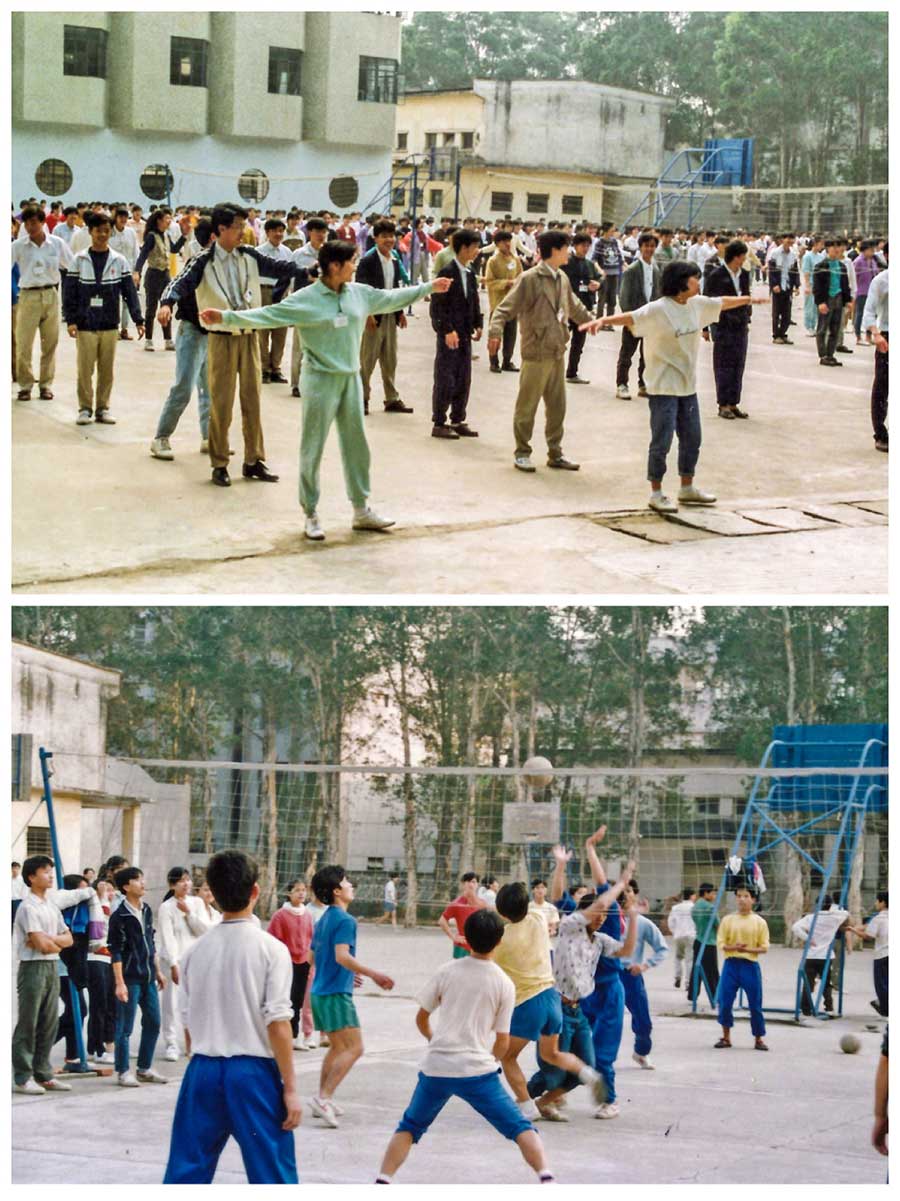Witnessing educational progress in Guangdong


Teaching at that time was much more formalized than my familiar norms. Resources were relatively basic - blackboard, chalk and talk, though television monitors were in every classroom. In Scotland the emphasis was more on worksheet - based individualized learning. In Guangzhou I spoke intensively, relatively slowly, clearly and thoughtfully with each hour-long class. When the lesson finished, students would crowd around my desk asking questions about the topic. Initially, relations were quite formal. Teachers provided the information, students learned what the teacher taught without any interruption. It was more rote learning, where at exam time they would regurgitate what they had been taught. The challenge, which I won, was to have interaction, to stimulate critical thinking about what they were studying. That year proved to be personally rejuvenating.
One evening when I returned to the school, all the classroom lights were on. I discovered my students all quietly studying, reading or doing homework. Evenings were time for private study - this was after having sports and dinner. Talking with me about why they studied so hard, they would explain how education was essential for the future of the country. Many of their parents had gone through a difficult period of broken education, and they were the new generation. They had no distractions. There were no boyfriends, for example. Romance, followed by marriage, was for after graduation. There was a determination to succeed not just for themselves, but for China. I recall sleepless nights thinking how this level of commitment must be repeating itself across much of the country. I felt I was witnessing something big happening, foundations being laid for the future.


































